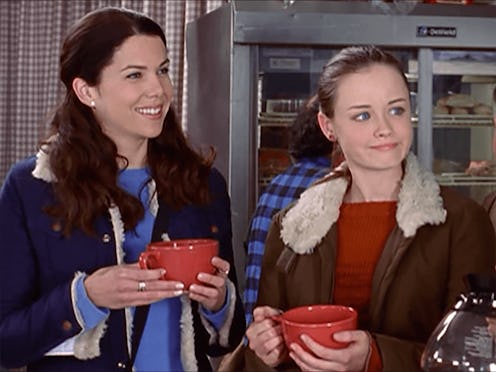
If you’ve ever had the sneaking suspicion that one of your colleagues is a lot easier to get along with after they’ve been sufficiently caffeinated, you’re not wrong: According to a new study, coffee actually makes you like people more. Conducted by researchers at the University of California, Davis and published this spring in the Journal of Psychopharmacology, the study honestly comes as little surprise to me — but then again, I am a famously misanthropic coffee enthusiast, so I’m already quite familiar with the “But first, coffee” lifestyle. (Seriously. You do not want to talk to me before I have had my morning coffee. Trust me on this.)
Although a large body of research has been carried out on the effects of coffee on individuals, not a lot has been done on how it affects groups — so that’s what the writers of the current paper aimed to explore, according to a press release from UC Davis. The study consisted of two experiments For the first, the participants — all undergraduate students — were split into two groups, with one being asked to drink 12 ounces of caffeinated coffee beforehand and the other going coffeeless. Then, they were each tasked with spending 15 minutes reading about the Occupy Wall Street movement before discussing the movement within their groups. The conversations were coded according to a point system developed by the researchers (gotta make the whole thing quantifiable somehow); additionally, the participants completed a self-evaluation after the task was finished.
When the researchers took a closer look at the coded conversation scores, they found that participants who had drunk caffeinated coffee both “delivered a higher quality of arguments when working through simple group activities” and “had more of them,” as well, according the press release. Overall, caffeine seemed to "increase a group’s focus and encourage each person to participate more in discussions,” states the press release. Even more interestingly, though, the researchers also found that people who drank coffee before participating in a group task thought more highly of both their own performance and the group’s performance than the participants who didn’t drink coffee did, as evidenced by their self-evaluations.
But after the conclusion of this experiment, the researchers still had some questions. Specifically, they wanted to know whether it was the caffeine in the coffee that seemed to make people like each other more, or whether it was the act of drinking coffee together that did it. So, they tweaked the original experiment such that all of the participants drank coffee together — but, unbeknownst to the participants, some of them were given caffeinated coffee, while others were given decaf. The effects, however, were the same: Drinking caffeinated coffee correlated with improved focus and alertness, as well as with participants rating both their own performance and the group’s performance more highly.
As study author Vasu Unnava explained to Psypost, the researchers think the heightened alertness the caffeine inspired in the participants is likely what brought on the results. “For … people [who regularly drink coffee], it looks like coffee does make them feel more alert, focuses their thinking on the topic or task at hand, and has them participate more in group tasks,” Unnava said. “So if you are a coffee drinker, it looks like coffee helps you do better in group tasks.”
The results are particularly interesting when you consider who frequently coffee factors into work situations: It’s usually readily available; meetings are often held over coffee; there’s even the whole idea of the social coffee break — what’s referred to as kaffeeklatsch in German and fika in Swedish. Although there’s certainly something to be said for the social aspect of these work-related gatherings, the caffeine in the drinks that’s so often served at them might have more to do with the general sense of good will the meetings inspire than we may have thought.
The current research does, of course, have some limitations. It’s worth noting, for example, that the topic of conversation in the experiments was something on which most of the participants already agreed — that is, they weren’t coming at the discussion task with wildly differing opinions right from the get-go. “What the results might be if there is a disagreement is an interesting issue to study further,” noted Unnava to Psypost. They also only assessed group discussion as the task; the study didn’t gather any data on how caffeinated coffee and, say, group problem solving or group physical work might — or might not — relate.
Still, though; the results are fascinating, and the whole subject is clearly worth more study. And wouldn’t you know it? UC Davis actually has its very own Coffee Center, a research center that exists solely for the purpose of researching coffee. I very much enjoy that this place exists — so of course, I have one very important question about it: How can I get a job there?
Call me, UC Davis. I’ll be waiting right here, coffee pot in hand.